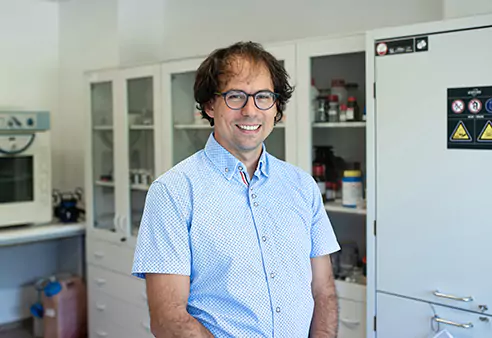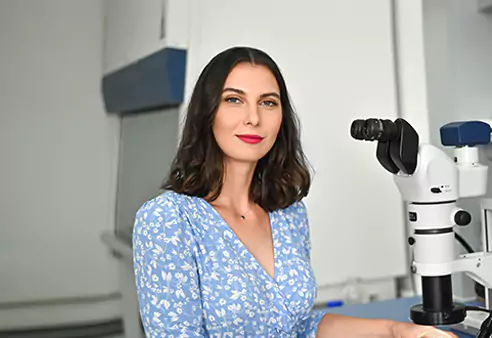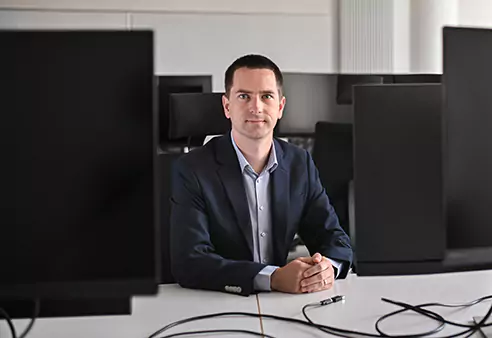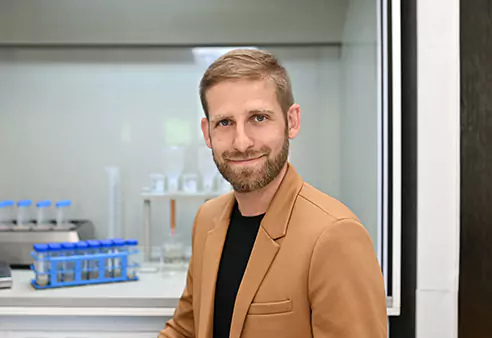How can we extend the longevity of wind turbines, increase electric vehicle ranges, or reduce industrial emissions? These and other questions are answered by the research of doc. Ing. MSc. Martin Klaučo, PhD., who works at the Faculty of Chemical and Food Technology of the Slovak University of Technology in Bratislava. His research deals with optimal process control in industrial environments that leads, among other things, to carbon-footprint reduction and energy saving.
Optimal process control is process control that leads to a desired outcome that increases efficiency and speed, reduces costs, or minimises environmental impact. Optimal process control uses, among other things, forecasting.“When I know the weather forecast and I know it’s going to rain, I don’t need to water my lawn and I can save precious water. Optimal control helps us adapt to the future and, in the process, save material or energy resources,” Martin Klaučo says.
He uses artificial intelligence within his research to simplify difficult mathematical problems, so that optimal process control can be applied in practice. His work is usually comprised of three phases. First, he needs to understand the industrial issue, for example how a wind turbine works and what causes it to wear. He then transforms the problem into mathematical formulas. Finally, he simplifies these formulas so that optimal process control can achieve the desired outcome. In the case of the wind turbines, the outcome is to extend their longevity, and in industrial chemistry it is to conserve resources in heating distillation columns that produce fuel.
“Conversion into maths is only half the problem; it doesn’t solve anything. I enjoy simplifying it so that we can use the results in practice in industry and make something better.” He sees reducing the carbon footprint and saving natural resources as the biggest benefits of his research.
Martin Klaučo has been enthralled by science since high school. He realised that thanks to Excel and sci-fi shows. “Thanks to Excel I realised that one can draw up and calculate very simple maths problems. Sci-fi shows inspired me to see as-yet unsolvable issues as something that could be solved in the future.”
In his research, he is in close cooperation with several industrial companies, such as Porsche Engineering Services, where he helped set up a suitable strategy for electricity use in cars, which resulted in increasing the range of electrical vehicles’ batteries. He has put his science expertise into practice via several cooperations abroad, for example at the University of California, Berkeley, during a 6-month research visit, in common publication activity with the Pacific Northwest National Laboratory, and at the Ruhr University Bochum (Germany).
Martin Klaučo is currently the head of the Department of informatisation and Process Control at the Faculty of Chemical and Food Technology of the Slovak University of Technology. For him, this position is a dream come true.
“I’m grateful to be leading a European-level research department that the Ministry of Education, Science, Research and Sport of the Slovak Republic called the best in cybernetics and that has great overlap with world-class science. My long-term goal remains creating personnel capacities in the field and helping my colleagues keep up the high level of the work,” he adds.
In his free time, Martin Klaučo likes to program and keep up with tech news – and not only in the field of automatisation. Sci-fi shows and books are still his favourites, but he does not forget about exercise. He does cross-fit and likes playing squash.



